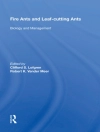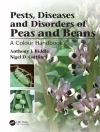This book is dedicated to present different aspects of reproductive physiology and molecular endocrinology of commercially important as well as potential aquaculture fish species. The existing aquaculture generation is looking for species diversification for efficient utilization of available diverse water resources. The knowledge of reproductive physiology of fish will help in development of breeding strategy for use in commercial aquaculture. Reproductive system is highly coordinated and governed by means of complex network of nervous, endocrine system and environmental factor as well. This book emphasize on different key aspects of reproductive endocrine system such as basic gonadal biology in the events of climate vulnerability, sex determination, sex reversal, stimulatory hormones, inhibitory hormones and receptors, environmental and chemical factor guiding reproduction, puberty, neuroendocrine regulation of reproduction etc. This book further describes how reproduction is not just indispensable for the existence or survival of an individual, but it is important for the survival of species. Chapters also address the concerns of anthropogenic activities on fish and the aquatic environment lead main trouble on physiological and reproductive processes of aquatic animals.
This book offers an attractive compilation of highly relevant aspects of current and future of aquaculture, especially in view of the growing awareness of aquaculture, to food scientists working on commercial fish, animal biologists, fish geneticists etc. This book is very timely, and relevant to the sustainable development goals. The contents would be relevant to policy makers, working towards blue revolution and blue economy.
Innehållsförteckning
Chapter 1. Sex Hormones and their Role in Gonad Development and Reproductive Cycle of Fishes.- Chapter 2. Endocrine Control of Vitellogenesis in Teleosts.- Chapter 3. Estrogenic Regulation of Reproduction in Teleosts.- Chapter 4. Steroids and its receptors in Fish reproduction.- Chapter 5. Hormonal influence on Induced Maturation and Spawning in Striped Murrel, Channa Striata.- Chapter 6. Reproductive and Breeding Biology of Snow trout (Schizothorax niger).- Chapter 7. Reproductive and Biological Study of Tuna ( Euthynnus affinis).- Chapter 8. Zebrafish (Danio rerio) : A Versatile Model for Reproductive Biology.- Chapter 9. Sex Determination in Teleost Fish.- Chapter 10. The Involvement of Gonadotropin Inhibitory Hormone (Gnih) in Fish Reproduction.- Chapter 11. Gene Regulation on Spermiation of Catfish.- Chapter 12. Role of Ghrelin in Reproductive Physiology of Fish.- Chapter 13. Melatonin and Seasonal Reproduction in Teleosts.- Chapter 14. Role of Small RNA in Fish Reproduction.- Chapter 15. Bioinformatics Tools and their Role in Reproductive Biology.- Chapter 16. Modulation of Hypothalamic-Pituitary-Gonadal (HPG) Axis by Phytotherapy Using Different Delivery Approaches.- Chapter 17. Functional Role of Dietary Supplements on Reproductive Physiology of Fishes.- Chapter 18. Endocrine Disruption in Freshwater Fish from Contaminants of Emerging Concern.- Chapter 19. Hormonally Active Agents : A Menace for Oogenesis and Fertility in Teleosts.- Chapter 20. Anthropogenic Exposure and its Impact on Reproductive System of Fishes.- Chapter 21. Effect of Climate Change on Endocrine Regulation of Fish Reproduction.
Om författaren
Jitendra Sundaray, is the Head, Division of Fish Genetics and Biotechnology at ICAR- Central Institute of Freshwater Aquaculture, India. He has completed his undergraduate from Odisha University of Agriculture and Technology, . Master in Science from Ravenshaw University and the Post Graduate Diploma in Fisheries Science from ICAR- Central Institute for Fisheries Education, Mumbai. He has completed Ph.D from Kyushu University, Fukuoka, Japan. His major research interest is captive maturation of fish through hormonal manipulation. He is leading a Center of Excellence project on the genetic improvement of freshwater fish.He is a fellow of Odisha Environmental Society, Zoological Society of India, Applied Zoologist Research Association, India, and Fellow of Indian Society of Coastal Agricultural Research. .
Dr. Mohd Ashraf Rather is an Assistant Professor at the Division of Fish Genetics and Biotechnology, Faculty of Fisheries, Rangil; Sher-e-Kashmir University of Agricultural Sciences and Technology- Kashmir. He graduated from College of Fisheries, Ratnagiri, Maharashtra, and obtained Masters and Doctoral degrees in Fisheries Biotechnology, Central Institute of Fisheries Education, Mumbai. His area of research interest is Reproductive physiology and Molecular endocrinology of fish proteins. His major research contribution is the identification, characterization and expression profiling of more than fifty reproductive genes in fish including kisspeptin genes in Indian major carps. He has received Young Scientist Award from the Society of Fisheries and Life Science. He has also received Asia-Pacific Alltech Young Scientist Award in agriculture and allied field from Alltech company, USA. He has published more than forty research publications in both national and international journals. In addition, he has published one book, two conference proceedings and two book chapters.
Mr. Sujit Kumar is an Assistant Professor at the Department of Fish Biotechnology, Postgraduate Institute of Fisheries Education and Research, Kamdhenu University, Gandhinagar. He graduated from Fisheries College and Research Institute, Thoothukudi, TNJFU, Tamil Nadu and obtained Masters degree in department of Fish Biotechnology, Central Institute of Fisheries Education (CIFE), Mumbai. His area of research interest is Functional Genomics, molecular endocrinology and microbial biotechnology. His major research contribution is the development of microsatellite marker for Clarias magur, metagenomics study of Rohu intestine from different water source. He is a recipient of various accolades like, Sir Dorabji Tata Trust Endowment International Fund, Dr. C. V. Kulkarni Gold Medal, “Parasakthi Vaithilingam Excellence Award” Prof. G. Rangaswamy’s Prize, H.P.C. Shetty Award, Junior Research Fellowship (JRF, 5th rank) from Indian Council of Agricultural Research (ICAR), New Delhi etc. He has published over 20 publications in national and international journals, training manuals and book chapters.
Dr. Deepak Agarwal is an Assistant Professor at the Department of Fish Biotechnology, Institute of Fisheries Post Graduate Studies, Tamil Nadu Dr. J. Jayalalithaa Fisheries University (TNJFU), OMR Campus, Chennai, Tamil Nadu, India. He graduated from College of Fisheries, Govind Ballabh Pant University of Agriculture and Technology (G.B.P.U.A & T), Pantnagar, Uttrarakhand, India and Masters and Doctorate from Central Institute of Fisheries Education (CIFE), Mumbai in Fish Biotechnology. His area of research interest is Functional Genomics, Transcriptomics and Computational Biology of fish reproductive proteins. His major research contribution is the mining of molecular marker (SNP) in economically important fresh water prawn and developing of transcriptome data of fish reproductive genes from Indian walking catfish. He has published more than fifteen research publications in both national and international peer-reviewed research journals. In addition, he has published four monographs in the proceedings of esteemed organization.












